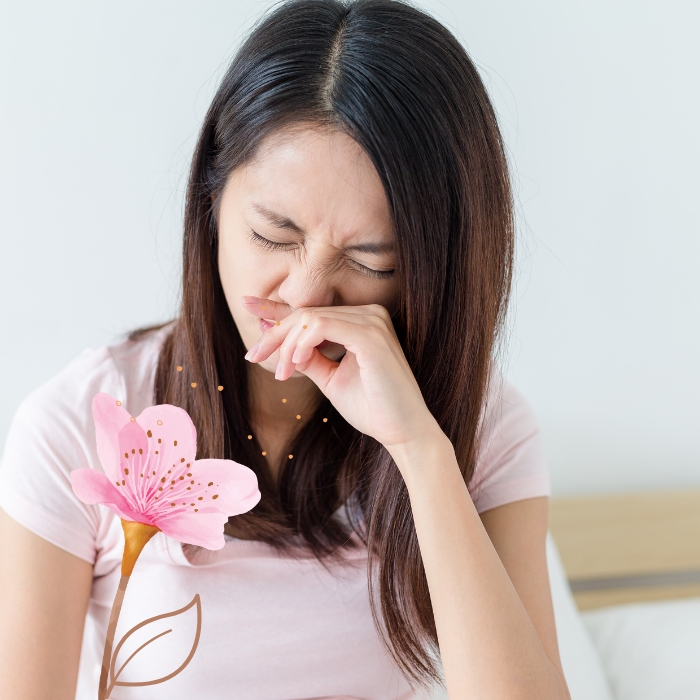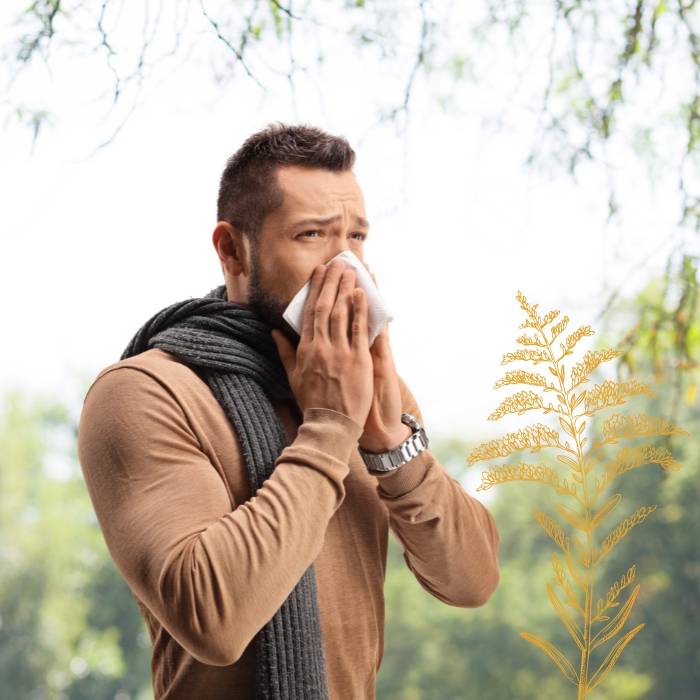
Seasonal Allergies from the Ayurvedic Perspective
Have you been suffering from the symptoms of allergies for years and thought it would never end?
Contrary to popular belief, allergies are nothing more than a reflection of our energetic state in our physical body, which can be restored or even eliminated with significant lifestyle changes and mindfulness.
Let's put this into perspective!
Seasonal allergies make life difficult for many people around the world, especially in spring and autumn when pollen or even mould spores proliferate in the air. The most common allergic reactions include sneezing, runny nose, itchy eyes and throat, difficulty breathing and, in some cases, other specific symptoms.
However, Ayurveda, the ancient Indian medicine, looks at allergies in a different way compared to Western medicine and offers a holistic approach to not only treating existing symptoms, but also preventing the onset of symptoms in order to maintain a balanced functioning of our body.
Ayurveda always focuses on the balance between body, mind and spirit and therefore attributes allergic reactions to energetic imbalances in the body.
What is allergy in Ayurveda?
In short, Ayurveda is based on the theory of the five elements (earth, water, fire, air, ether) and the three doshas (Vata, Pitta, Kapha). The doshas, or energy balance systems, regulate the functioning of our biological body and, in the Ayurvedic approach, it is often their imbalance that is at the root of the development of allergies. In particular, seasonal allergies can occur when the body's Vata or Kapha dosha is predominant. Vata represents air and ether, while Kapha represents earth and water. When both doshas are predominant, excessive mucus production or symptoms associated with respiratory congestion may occur, ultimately leading to the development of seasonal allergies.
In the case of a predominance of Vata and Kapha, Ayurveda recommends natural remedies to help restore the proper balance of these areas and elements. Eating warm, spicy foods such as ginger, turmeric or cinnamon can help loosen mucus and clear the airways, while using Ayurvedic herbal supplements such as Ashwagandha, Tulsi or Shilajit can strengthen and balance the immune system, reducing allergy symptoms.
If additional treatments are required, other forms of Ayurvedic treatment may be used, such as oil massage (abhyanga), breathing exercises (pranayama) or inhalation and other types of herbal treatments with specific calming effects.

Ayurvedic solutions for allergy treatment:
As Ayurveda is not only about relieving symptoms, it also offers us a wealth of useful information and easy-to-learn knowledge about lifestyle changes. Our lifestyle plays a more important role than we think in maintaining a balance between our physical and mental health, and therefore in treating and recovering from allergy symptoms. It is no coincidence that we often come across tips on getting a good night's sleep, managing stress, and developing an individual diet or daily routine.
Organ detoxification and whole-body cleansing are also highly recommended and can be helpful in case of treating seasonal or even other types of allergies, as it is often the amount of toxins and waste products that accumulate in our bodies that cause our intolerance or sensitivity to certain ingredients and molecules. Ayurvedic detoxification treatments, such as traditional Panchakarma, help to remove toxins from the body, which is also an effective way of eliminating allergic reactions.
In treating seasonal allergies, Ayurveda focuses not only on relieving symptoms, but also on achieving a healthy lifestyle and inner harmony. To prevent allergic reactions, it is important to pay attention to the balance of our body, mind and interactions with our environment, and to support our body's natural detoxification processes and defence mechanisms through the Ayurvedic approach.
Through this holistic approach, seasonal allergies can be treated and eliminated not only symptomatically, but also in the long term, while restoring physical and mental well-being.






